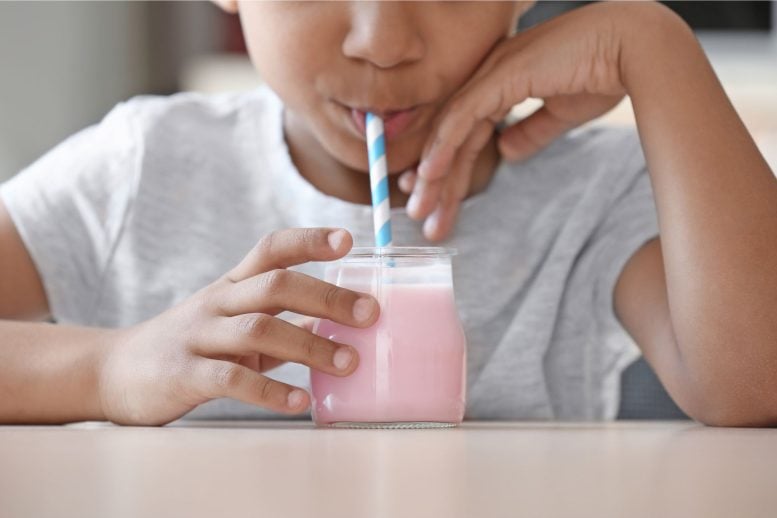Alert: 100% Fruit Juice May Raise Diabetes Risk in Young Boys

A study in Massachusetts suggests that boys who regularly consume sugary drinks and fruit juices (8 ounces or more daily) during childhood and adolescence may have an increased risk of developing Type 2 diabetes, as indicated by glycemic markers. This correlation was not observed in girls. Additionally, the study found no significant link between consuming fresh fruit during childhood and adolescence and Type 2 diabetes risk in either gender.
A new study suggests that drinking sugary drinks and 100% fruit juices during childhood and adolescence may increase the risk of developing Type 2 diabetes in boys, highlighting the need for dietary caution.
A small, long-term study of nearly 500 children in Massachusetts found that regular consumption of sugary drinks and 100% fruit juices during childhood and adolescence was linked to a higher risk of developing Type 2 diabetes among boys compared to girls. This preliminary research was presented at the American Heart Association’s Epidemiology and Prevention│Lifestyle and Cardiometabolic Health Scientific Sessions 2024.
“While these findings are preliminary, they support the existing evidence about the potential relationship between beverages with added sugar and long-term risk of Type 2 diabetes in children,” said lead investigator Soren Harnois-Leblanc, Ph.D., a registered dietitian and postdoctoral researcher in the department of population medicine at Harvard Pilgrim Health Care Institute and Harvard Medical School, both in Boston. “Pediatricians and other health care professionals should caution young patients and their parents about sugary drinks and fruit juices when discussing healthy eating habits.”
According to a 2022 American Heart Association fact sheet about sugary drinks, nearly two-thirds of children and adolescents in the U.S. consume at least one sugary drink, such as soda, lemonade, or an energy drink, each day. It also notes that in addition to weight gain, eating too many foods with added sugars, especially from sugary drinks, raises the risk of developing heart disease, high blood pressure, Type 2 diabetes, and tooth decay.
Using data from Project Viva, an ongoing long-term study of women and their children in eastern Massachusetts that began in 1999, researchers explored whether drinking sugary drinks, 100% fruit juices, and eating fresh fruits were associated with markers for developing Type 2 diabetes. Researchers calculated the average consumption of sugary drinks, 100% fruit juices, and fresh fruits over childhood and adolescence based on dietary records and assessed their potential associations with three markers of Type 2 diabetes: insulin resistance, fasting blood glucose level, and HbA1c levels. These markers were measured by a single blood test while fasting in late adolescence (approximately age 17).
The analysis found:
The associations between regularly drinking sugar-sweetened beverages and insulin resistance, fasting blood glucose levels and elevated HbA1c levels among boys persisted when other health, family, and social factors were considered. These factors included socioeconomic status; child’s and mother’s body mass index; mother’s age at time of child’s birth; maternal and paternal history of Type 1 or Type 2 diabetes; overall diet quality and other lifestyle behaviors.
“Although several aspects of biology and behaviors differ between boys and girls, I would have expected to also find an association between sugar-sweetened beverages and fruit juice intake and the increases in insulin resistance, glycemia, and HbA1c levels in late-adolescent girls. I was also surprised that eating whole fruits did not reduce the levels of these markers of Type 2 diabetes,” Harnois-Leblanc said.
“The next steps are to use more advanced statistical tools to enable us to better understand the potential causal role of sugary drinks and fruit juices, and to examine whether the relationships may also differ among children by race and/or ethnicity.”
Study background and details:
The study had several limitations. Although it found an association between regularly drinking sugary drinks and fruit juices and the development of markers for Type 2 diabetes, it could not prove that the drinks caused Type 2 diabetes. Additionally, the relatively small number of study participants may have affected the strength of the association found between sugary drinks and fruit juices and the increased risk of developing Type 2 diabetes.
“Diet and cardiometabolic health are complex, with many factors varying over time and interacting in different ways, and this study represents one small piece of this puzzle,” Harnois-Leblanc said.
American Heart Association nutrition committee member Penny M. Kris-Etherton, Ph.D., R.D., FAHA, said, “This study has shown that greater sugar-sweetened beverage intake, including fruit juice, throughout childhood and adolescents is associated with higher markers of diabetes risk in late adolescents in boys but not girls. It is striking that many measures of Type 2 diabetes risk were increased in boys at such an early age.”
Kris-Etherton, an emeritus professor of nutritional sciences at Penn State University, was also a co-author of the Association’s 2018 science advisory on low-calorie sweetened beverages and cardiometabolic health.




